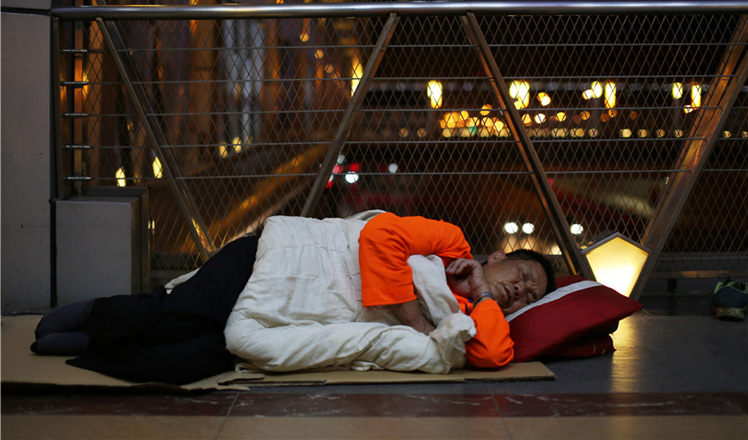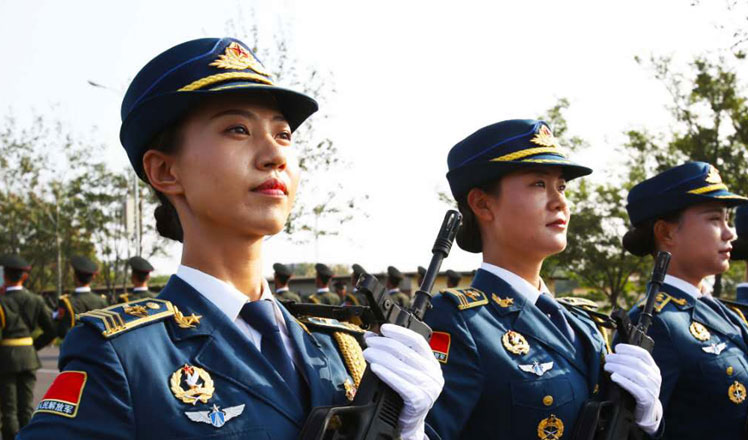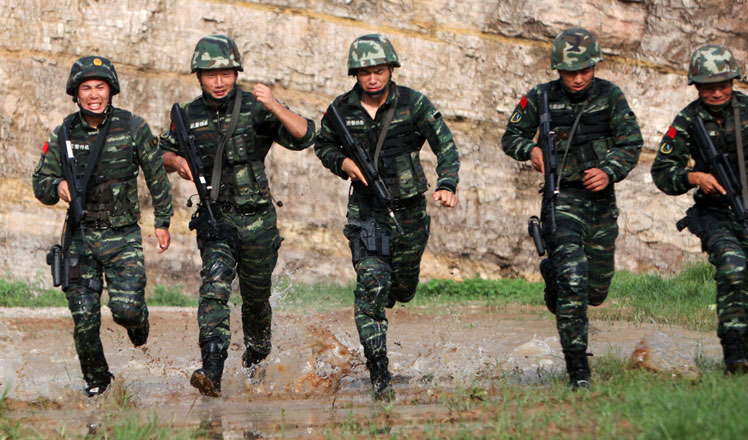US' actions are steadily eroding bilateral trust
Updated: 2016-08-03 07:54
By Wang Hui(China Daily)
|
||||||||
During the meetings of the Association of Southeast Asian Nations last week in Vientiane, Laos, the US, Japan and Australia issued a trilateral joint statement on the South China Sea, urging China to respect the international arbitration ruling, which is in total disregard of the positive signals China and ASEAN have sent on the disputes.
The illegal and invalid ruling, issued by the arbitral tribunal in The Hague on July 12, was driven by a hidden agenda to deny China's sovereign rights and interests in the South China Sea.
At almost the same time as the arbitration ruling was released, the Republic of Korea announced it will deploy the US' Terminal High Altitude Area Defense anti-missile system.
China has strongly opposed the deployment of the THAAD in the ROK as it will not only undermine China's security interests but also have severe consequences on the regional strategic equilibrium and trigger an arms race on the Korean Peninsula.
On the technical level, experts have for long pointed out the limited defense THAAD provides against a missile attack from the North. The US missile shield is designed to shoot down missiles at an altitude of 40-150 km, while rockets of the Democratic People's Republic of Korea fly at a lower altitude of about 20 km, making them incapable of being intercepted by the US system.
As such, it is no exaggeration to say that the deployment of the THAAD system on the Korean Peninsula is nothing but another step in the US strategic hedging against China.
As a result of the US' political and military maneuvers intended to contain China in the region, the strategic mutual trust that the two countries have painstakingly been building in recent years is being eroded bit by bit. The current tension between the world's two largest economies is enough to arouse concerns and worries.
As Tung Chee-hwa has rightfully pointed out last month, a good China-US relationship is important to both economies and to the world at large. The ball is now in the US' court if it still wants cooperation, other than confrontation, to prevail.
The author is deputy editor-in-chief of China Daily Asia Pacific. jasmine@chinadailyhk.com
- Not for the faint-hearted: Glass bridge opens in Hunan
- Geneticist defends his groundbreaking technique
- Activist jailed for subversion, harming national security
- New Hainan port opens as annual fishing ban ends
- From hunting wild fruits to satellite dishes: Life of Myanmar returnees
- World's first panda-themed subway line runs in Chengdu

 From dusk to dawn: The other side of Beijing
From dusk to dawn: The other side of Beijing
 Huangluo: China's 'long hair village'
Huangluo: China's 'long hair village'
 Typhoon Nida lashes Shenzhen
Typhoon Nida lashes Shenzhen
 Amazing robots work hard at Qingdao beer fest
Amazing robots work hard at Qingdao beer fest
 Chinese swimmers 'test the water' in Rio
Chinese swimmers 'test the water' in Rio
 Amazing night view of Kaifeng in Henan province
Amazing night view of Kaifeng in Henan province
 In pics: Women soldier carrying the flag
In pics: Women soldier carrying the flag
 Rough and tough world of soldiers' training
Rough and tough world of soldiers' training
Most Viewed
Editor's Picks

|

|

|

|

|

|
Today's Top News
US launches airstrikes against IS targets in Libya's Sirte
Ministry slams US-Korean THAAD deployment
Two police officers shot at protest in Dallas
Abe's blame game reveals his policies failing to get results
Ending wildlife trafficking must be policy priority in Asia
Effects of supply-side reform take time to be seen
Chinese State Councilor Yang Jiechi to meet Kerry
Chinese stocks surge on back of MSCI rumors
US Weekly

|

|









